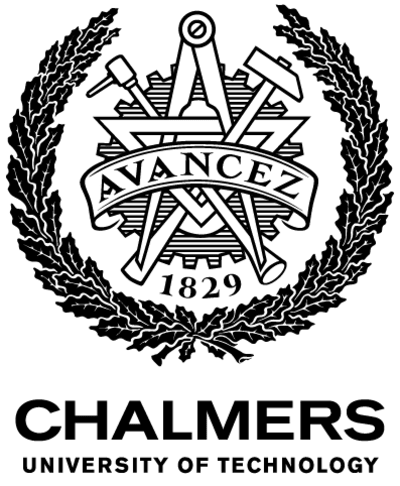
MSc in Engineering Mathematics and Computational Science
Chalmers University of Technology

Key Information
Campus location
Gothenburg, Sweden
Languages
English
Study format
On-Campus
Duration
2 years
Pace
Full time
Tuition fees
SEK 160,000 / per year *
Application deadline
Request info
Earliest start date
Request info
* tuition fees for non-EU/EEA students
Introduction
Nowadays, there is mathematics in virtually everything, from mobile phones to passenger cars and oil tankers. The internet is built on mathematics. Google is based on probability theory, and cryptology and secure data transfer are based on classical number theory. Modern physics, chemistry, climate science, bioinformatics — the list is long.
This master's program will provide you with a solid base in a combination of mathematics, mathematical statistics, and computational science.
Upon completion of the program, you will not only be able to master a given area of engineering, but also take part in the development of mathematical models and algorithms.
If you want to sharpen your engineering studies with state-of-the-art mathematical competence, or you have a keen, curiosity-driven mathematical interest, this program is for you. Deep knowledge of mathematics is in high demand in an ever-increasing number of areas.
The subjects of mathematical statistics, computational science, and mathematical modeling for engineering are fundamental areas in the program. Courses included in the program handle topics such as engineering mathematics, applied mathematics, mathematical biology, machine learning, big data science, pure math, and mathematical physics.
We also offer tracks towards bioinformatics, as well as a number of courses in financial mathematics.
Career
Roughly half of the previous students from this master's program have stayed in academia as Ph.D. students, in Sweden as well as abroad. Others have become employed in industry, for example in the automotive industry, the pharmaceutical industry, the telecom industry, the IT and software industry, the banking and insurance industry, or as consultants for the industry.
There is a broad range of companies where former students now are employed. Some examples are Ericsson, Volvo, Astra Zeneca, RUAG, Andra AP-fonden, Google, Uber, and Jeppesen.
General entry requirements
A Bachelor's degree in Science, Engineering, Technology, or Architecture
To fulfill the general entry requirement for a Master's program at Chalmers (at advanced level/the second cycle), the prospective student must hold a degree that is equivalent to a Swedish Bachelor's degree (minimum 3 years, 180 Swedish higher education credits) in either Science, Engineering, Technology or Architecture.
- All applicants must document their formal academic qualifications to prove their eligibility. Only documentation from internationally recognized universities will be approved by the Swedish Council for Higher Education which manages the website universityadmissions.se.
- If an applicant is also a holder of a second degree such as a Master's degree, that may be to fulfill specific (course) requirements, it cannot be used to fulfill the general entry requirement on its own.
In your final year of Bachelor's Studies
Students in their last year of studies who don't yet have documentation of their soon-to-be-completed degree can be accepted.
Restrictions
Degrees that are constructed on one another cannot consist of the same course
Applicants who fulfill the general entry requirements for the second cycle (master’s level) programs and eventually specific entry requirements can be admitted to a master’s program. Applicants cannot be evaluated as unqualified in the qualifying academic merits which include courses from the program’s plan in those programs that they have applied for if that occurs.
Courses included in an earned first cycle degree (bachelor’s level) or professional qualification of at least 180 cr. (180hp) or the equivalent foreign qualification that are prerequisites for master’s qualifications may not be included in the higher qualifications. This also applies to prerequisite courses for master’s programs, regardless of whether they are included in the underlying qualification. *
*) Local Qualifications Framework for Chalmers University of Technology - first and second cycle qualifications.
Restrictions for Citizens from the Democratic People’s Republic of Korea (North Korea)
Chalmers cannot admit applicants with citizenship of the Democratic People’s Republic of Korea only to any program or course, due to the Council Regulation (EU) 2017/1509 of 30 August 2017 concerning restrictive measures against the Democratic People's Republic of Korea and repealing Regulation (EC) 329/2007.
For applicants with double citizenship of which one is of the Democratic People's Republic of Korea and the other of another country, the citizenship of the other country has precedence in this respect.